
How can we use AI tools to enhance our digital presence?
Like most business owners, you are always looking for ways to scale your digital presence and reach more customers. You have heard about artificial intelligence (AI) and how it can be an essential tool to help automate specific tasks and processes, such as customer service and marketing.
But what exactly is AI and how can it be helpful for businesses looking to scale their digital presence in the market? This month, Vantage ITeS will focus on AI-powered tools that can help design and create content for businesses, including SEO. Moreover, we will also be discussing the ethics of using AI-powered tools.
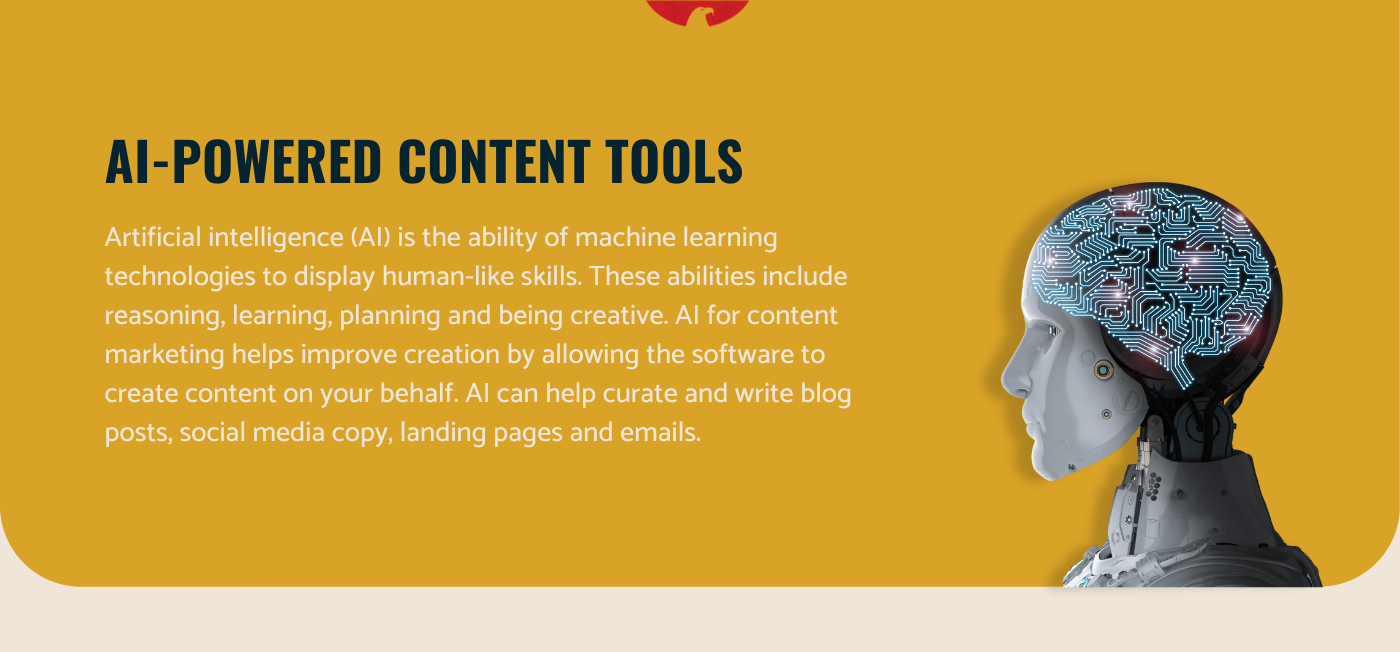
AI-powered content tools
Artificial intelligence (AI) is the ability of machine learning technologies to display human-like skills. These abilities include reasoning, learning, planning and being creative. AI for content marketing helps improve creation by allowing the software to create content on your behalf. AI can help curate and write blog posts, social media copy, landing pages and emails.
Let us look at some popular free AI tools for content creation businesses can use to generate authentic and plagiarism-free content.
GPT-3
GPT-3 is one of the best AI tools for digital marketing among individuals and businesses to create AI-powered content in seconds. GPT-3 is a powerful language generation model that can write articles, stories, and other types of content. It can also generate headlines, summaries and other written content. Though the software generates unique content, a manual check for plagiarism is also mandatory.
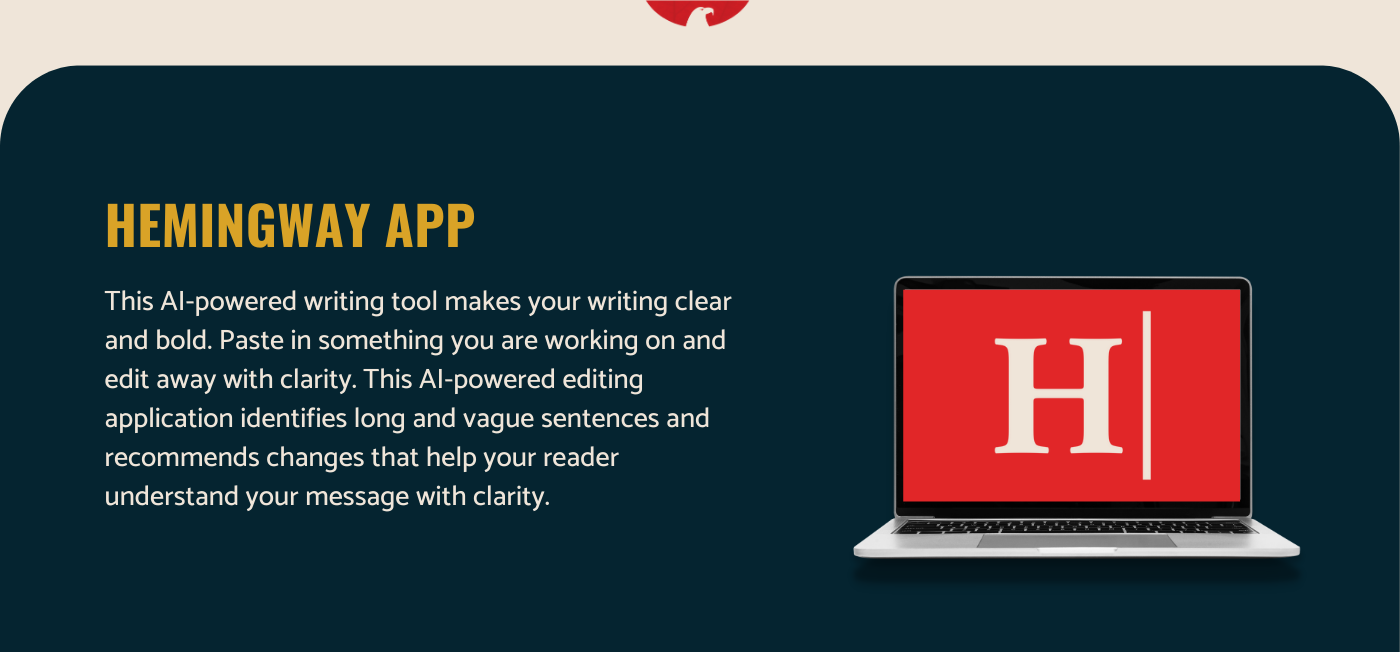
Hemingway App
This AI-powered writing tool makes your writing clear and bold. Paste in something you are working on and edit away with clarity. This AI-powered editing application identifies long and vague sentences and recommends changes that help your reader understand your message with clarity.
Grammarly
Grammarly is an AI writing assistance tool that can significantly improve your spelling and grammar when writing content. Grammarly will assist you with clarity, effective engagement writing, and professional and enhanced delivery.
Jasper
Jasper is an all-in-one AI content creation tool. It boasts a suite of templates that can assist you in creating multiple things. Jasper has it all if you want to create email subject lines, real estate listings, product descriptions, headlines and long-form blog content.
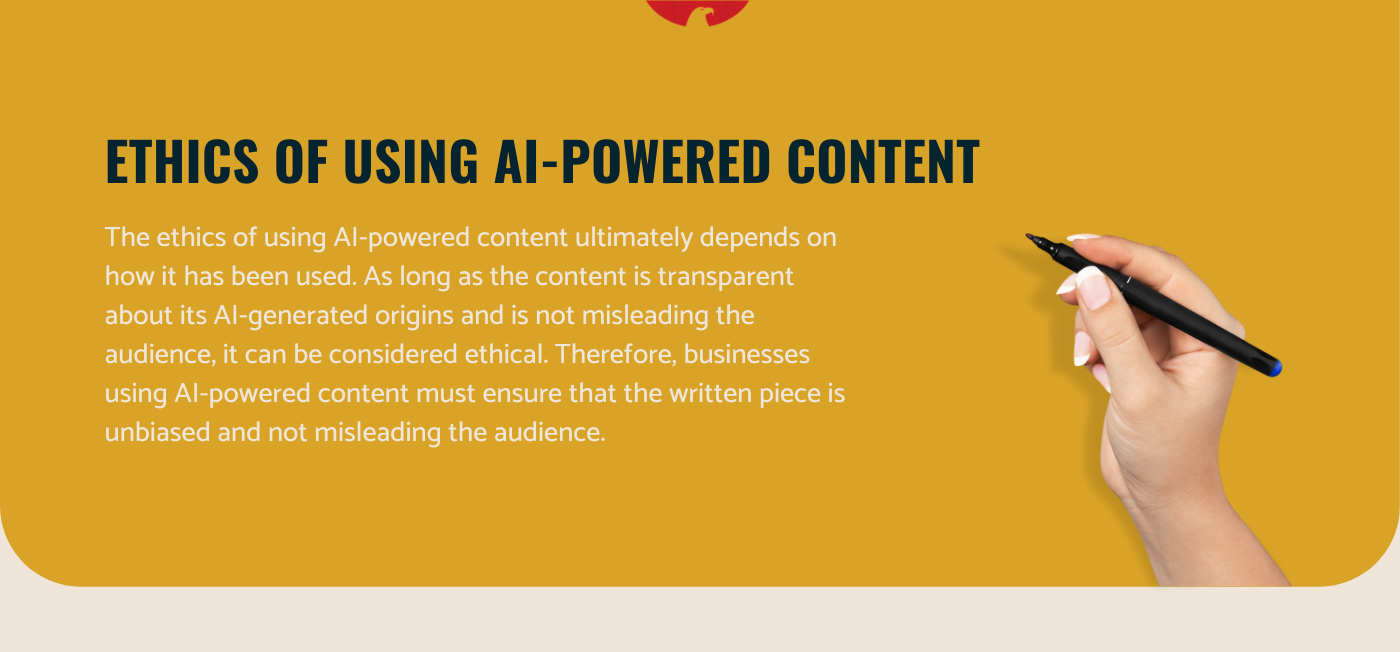
Ethics of using AI-powered content
The ethics of using AI-powered content ultimately depends on how it has been used. As long as the content is transparent about its AI-generated origins and is not misleading the audience, it can be considered ethical.
However, there are possible ethical concerns when using AI-powered content. If AI-generated content is used to spread misinformation or propaganda, it could harm readers and society. Therefore, businesses using AI-powered content must ensure that the written piece is unbiased and not misleading the audience.
Companies that use AI for marketing and content creation should ensure that the content created is free from any issues of fairness and bias. AI algorithms can sometimes perpetuate or amplify existing biases in their training data. Overall, it is essential to be mindful of the ethical implications of using AI-powered content and to use it responsibly and transparently.
Does google hate AI-powered content?
Recently in an interview, John Muller, the Search Advocate at Google, said content automatically generated using AI-powered tools is considered spam and is also against the guidelines of the Search Engine Webmaster Guidelines. He said that content written by AI falls under the category of auto-generated content and could also lead to a manual penalty. However, Google’s system may need more human support to define AI-generated scope.
Google Webmaster Guidelines clearly state that “websites should be created for the users, not for the search engines.” The primary focus of your content should be to provide value to your readers rather than to try to manipulate search rankings. As long as you are creating valuable content for your readers, using AI-powered content should not be a problem.
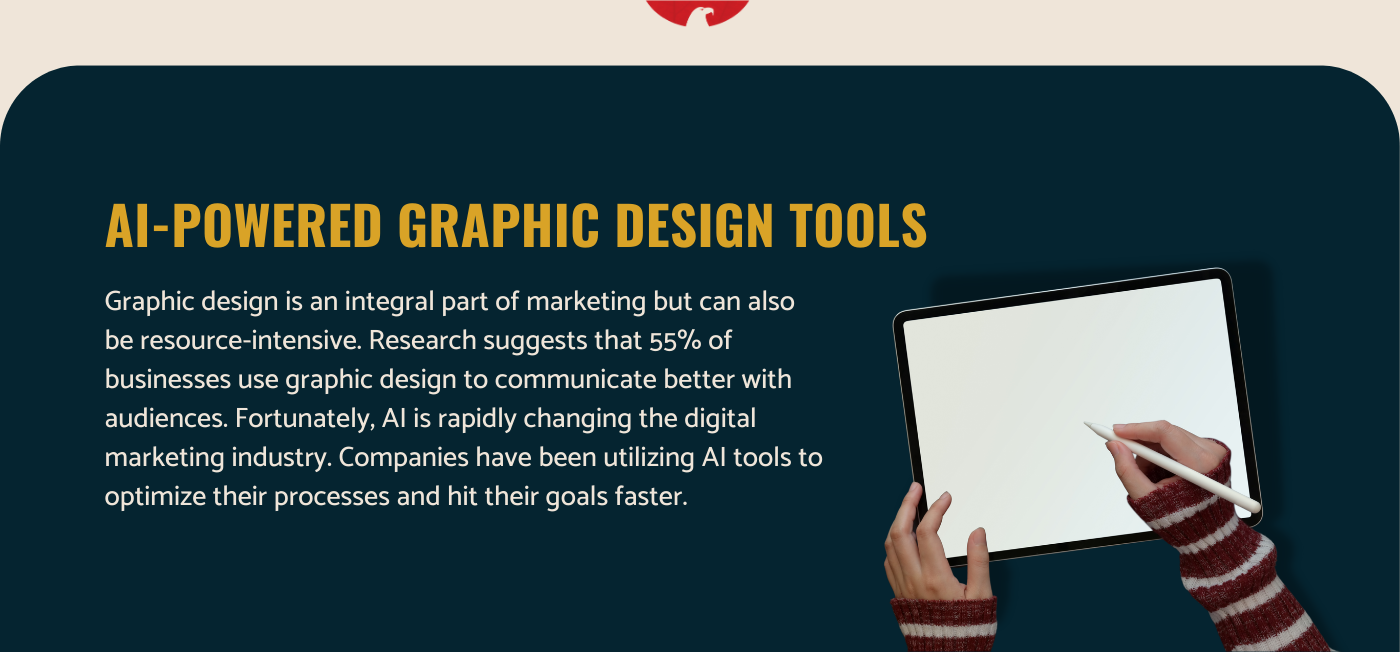
AI-powered graphic design tools
Graphic design is an integral part of marketing but can also be resource-intensive. Research suggests that 55% of businesses use graphic design to communicate better with audiences. Fortunately, AI is rapidly changing the digital marketing industry. Companies have been utilizing AI tools to optimize their processes and hit their goals faster.
Here are some AI-powered graphic design tools to help businesses create professional-looking assets within minutes.
Adobe Sensei
Adobe Sensei makes images discoverable and lets you create high-quality graphics that automatically adjust to screen size and resolution. Adobe Sensei helps you make better design decisions for marketing and can also help optimize your campaign strategies.
DeepArt
DeepArt effects learn different styles and refine your images. You can edit the foreground and background of the image, create your art styles, render images at any resolution, and design using your favorite artists’ styles.
Canva
Canva is an online graphic design tool with various AI-powered features, such as automated layout suggestions and object recognition. It offers different templates and tools, making it easy for users to create professional-looking designs without prior design experience. Canva is available online and as a mobile app.
AutoDraw
This web-based AI-powered drawing tool. Simply make a doodle on AutoDraw. Its suggestion will then attempt to guess what you are drawing. Then it will offer drawing suggestions created by different artists and designers to make your artwork look better.
Is AI-powered graphic design fair and ethical to artists?
AI-powered graphic design tools can impact the job market for traditional graphic designers. Some people may be concerned that AI-powered tools will replace human designers and lead to job loss. However, it is essential to note that AI tools are still relatively new and have limited capabilities compared to human designers. They are most effective when used in conjunction with human creativity and expertise rather than as a replacement for it.
It is also essential to consider the ethical implications of using AI-powered graphic design tools. For example, if AI-generated designs are used to deceive or mislead consumers, it could be regarded as unethical. It is important to use AI tools transparently and responsibly and to ensure that they are not used to take credit for the work of human designers.
Overall, it is essential to use AI-powered graphic design tools fairly and ethically for both human designers and consumers.
What about the artists whose work is fed into AI training systems? Should they get credit?
It is essential to ensure that artists whose work is used to train AI systems are appropriately credited and compensated for their contributions. Using the work created by someone without proper attribution or compensation could be considered unethical and potentially even illegal, depending on the circumstances.
There are a few ways that artists can ensure that they are credited and compensated for their work when it is used to train AI systems.
Use a Creative Commons License
Creative Commons is a non-profit organization that provides free copyright licenses that allow artists to specify how their work can be used and shared. Artists can use a Creative Commons License to ensure that their work is appropriately attributed when used to train AI systems.
Use a Content Management System
A Content Management System (CMS) is a software platform that allows artists to upload and share their work online easily. Many CMS platforms include features that will enable artists to specify how their work can be used and credited.
Use a Contract
If you are working with a company or organization that wants to use your work to train an AI system, you can negotiate a contract that specifies how your work will be used and credited.
By taking these steps, artists can ensure that they are properly credited and compensated for their work when it is used to train AI systems.
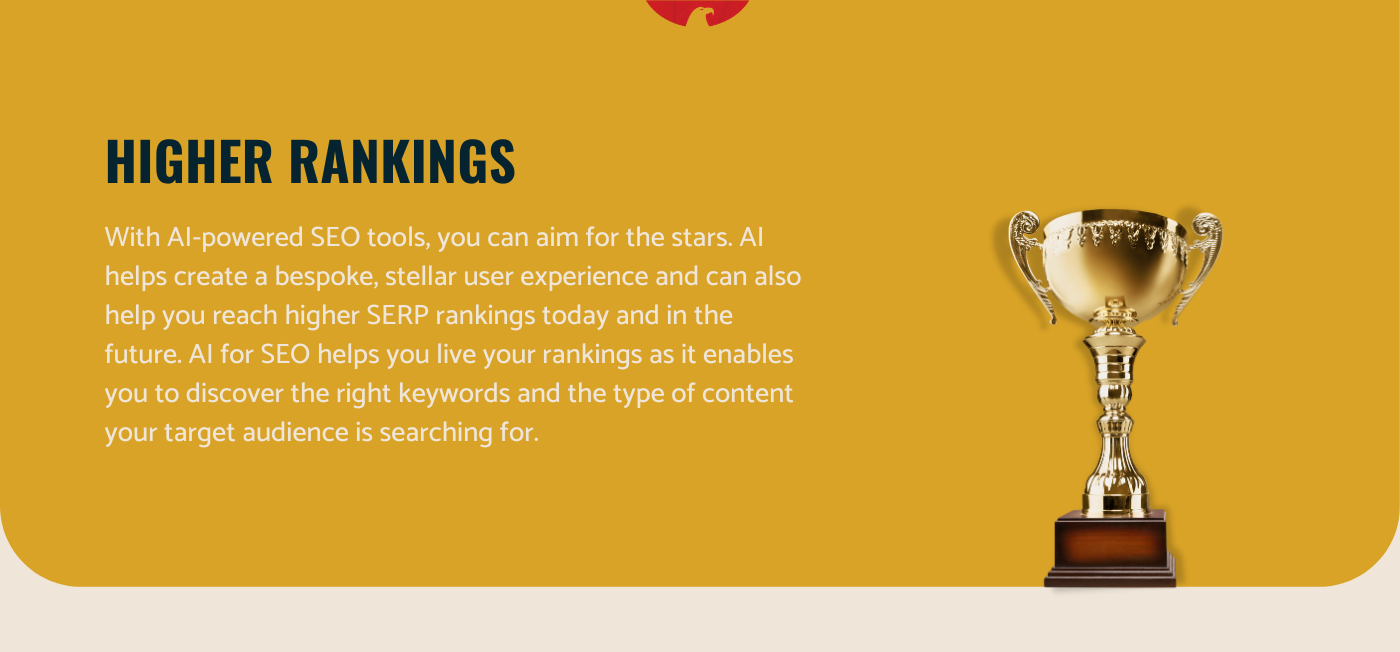
AI-Powered SEO
Using AI-Powered SEO tools to optimize your website and online content for search engines, making it more likely to rank highly in search results. AI-Powered SEO uses artificial intelligence in Search Engine Optimization (SEO) efforts to improve a website’s ranking on search engines like Google. Let us look at the ways to enhance SEO.
Keyword research
AI can analyze large amounts of data and identify the most relevant and popular keywords to target in SEO efforts.
Content optimization
AI can help optimize website content by analyzing the language and structure of the content and suggesting improvements to make it more search engine friendly.
Link building
AI can identify relevant and high-quality websites to target for link-building efforts, which can help improve a website’s ranking on search engines.
Analyzing search engine results
AI can analyze the results of a search query and identify patterns and trends that can help inform SEO strategies.
Overall, using AI in SEO can help improve a website’s ranking on search engines, drive more traffic to the site, and increase the visibility of a business or organization online.
AI-Powered SEO tools
Choosing the right SEO tool for your business is crucial. From optimizing your business for search engines to managing your online content and increasing engagement on your social platforms, the best AI SEO tools can help you meet your goals. Take a look at some of the best AI-powered SEO tools that can be useful for your business.
SEMrush
This popular all-in-one SEO tool uses artificial intelligence to help with keyword research, content optimization and competitor analysis. Its backlink crawler is also one of the fastest, so you can keep track of your link-building progress.
RankBrain
This AI system developed by Google helps improve search results by understanding the context and meaning of search queries.
DeepCrawl
This AI-powered website crawler can help identify technical SEO issues and provide recommendations for improvement.
SurferSEO
Surfer SEO is an excellent tool for creating content that ranks high in search engines. It allows you to see what keywords to use when creating new content and also lets you perform site audits to improve your website’s SEO.
SeoPilot
This AI-powered SEO tool helps with keyword research and content optimization and provides website and competitor analysis.
Key benefits of using AI-powered SEO
Every marketer involve with Search Engine Optimization (SEO) knows it can be pretty challenging, but with the right tools and adding AI to the mix, you can start to see the results. Take a look at the benefits of using AI-powered SEO.
Effectiveness and efficiency
Using AI for your SEO strategy can help you become quicker and more efficient in managing your digital marketing. The information you can dig out with AI for SEO is also incredibly accurate and up-to-date, which in turn helps boost productivity and inform meaningful business decisions.
Higher rankings
With AI-powered SEO tools, you can aim for the stars. AI helps create a bespoke, stellar user experience and can also help you reach higher SERP rankings today and in the future. AI for SEO helps you live your rankings as it enables you to discover the right keywords and the type of content your target audience is searching for.
Improved user experience
AI-powered SEO tools aim to provide a user experience that is relevant, useful, and personalized as possible. If you can make your clients’ lives better by delivering hyper-personalized services and products, they will come back and spread more about how great your brand is.
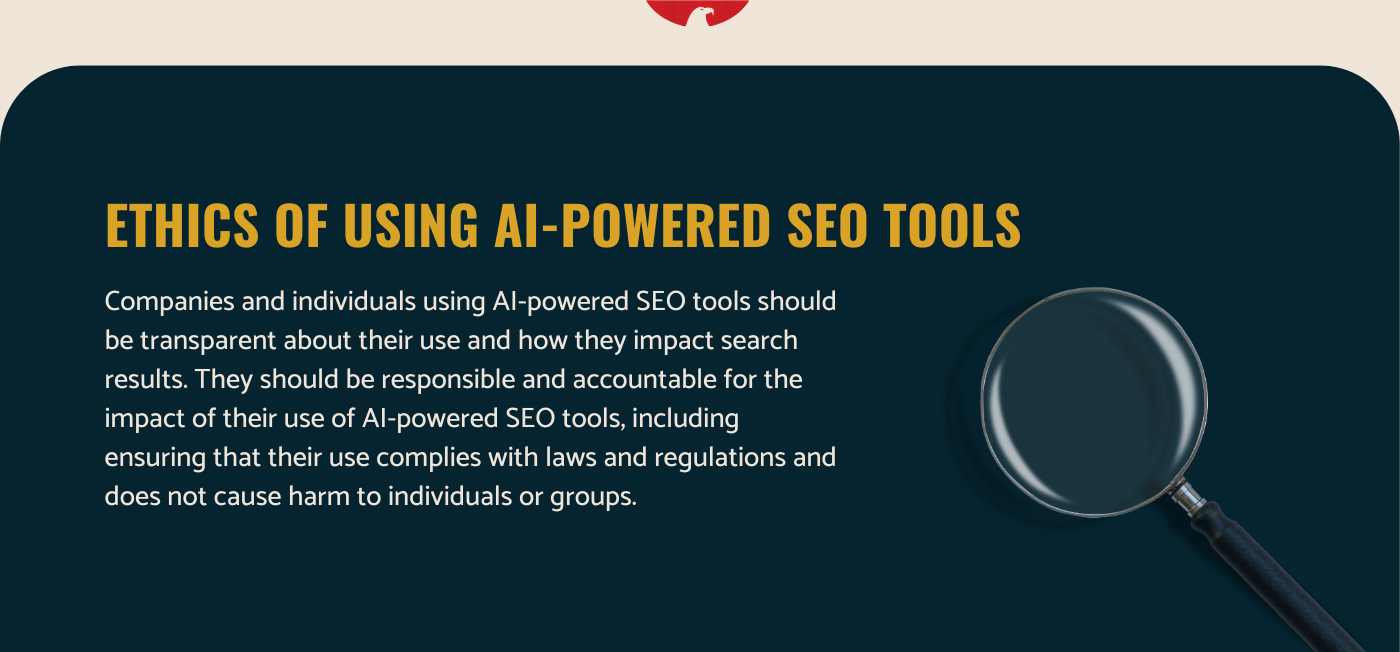
Ethics of using AI-powered SEO tools
The ethics of using AI-powered SEO tools ultimately depends on how it has been used. AI-powered SEO tools should be used responsibly and with consideration for ethical considerations. Here are some of the ethical aspects of using SEO-powered tools.
Companies and individuals using AI-powered SEO tools should be transparent about their use and how they impact search results. They should be responsible and accountable for the impact of their use of AI-powered SEO tools, including ensuring that their use complies with laws and regulations and does not cause harm to individuals or groups.
Another ethical aspect is that companies and individuals using AI-powered SEO tools should respect privacy rights and ensure that AI-powered SEO tools comply with data protection laws and regulations. There may be a need for independent oversight and regulation of AI-powered SEO tools to ensure responsible use and prevent harm.
By using AI-powered SEO tools responsibly and ethically, companies and individuals can help to ensure that search results are accurate, impartial, and accessible to all.
Future of AI and digital marketing
From the blog, we have learned that AI can streamline and optimize marketing campaigns. AI in marketing can also eliminate the risk of human error. However, businesses still need empathy, compassion and storytelling to let their audience emotionally connect with the brand, products and services. This is why businesses still need to have the human touch.
Businesses are pouring money into AI investments. As more AI use cases occur, we will discover the most and least effective ways of applying this technology in digital marketing.
Everyone wants extraordinary results. To achieve such results, businesses and their branding teams need to think specifically about their positioning and how to leverage themselves – and rapidly execute. AI or not, you still need a human being to understand your business and ensure that you connect with your audiences. VantageITeS can be a bridge between your brand and AI systems like SemruSh, HemingwayApp, ChatGPT (add). Start your brand development journey with VantageITeS, save time and money, and create meaningful content that resonates with your audience. To know more about brand marketing, content strategy and our graphic design services, email us at info@vantageites.com.
**This blog has been written using ChatGPT and our human contributors to create a hybrid that we hope will be both relatable and informative**
